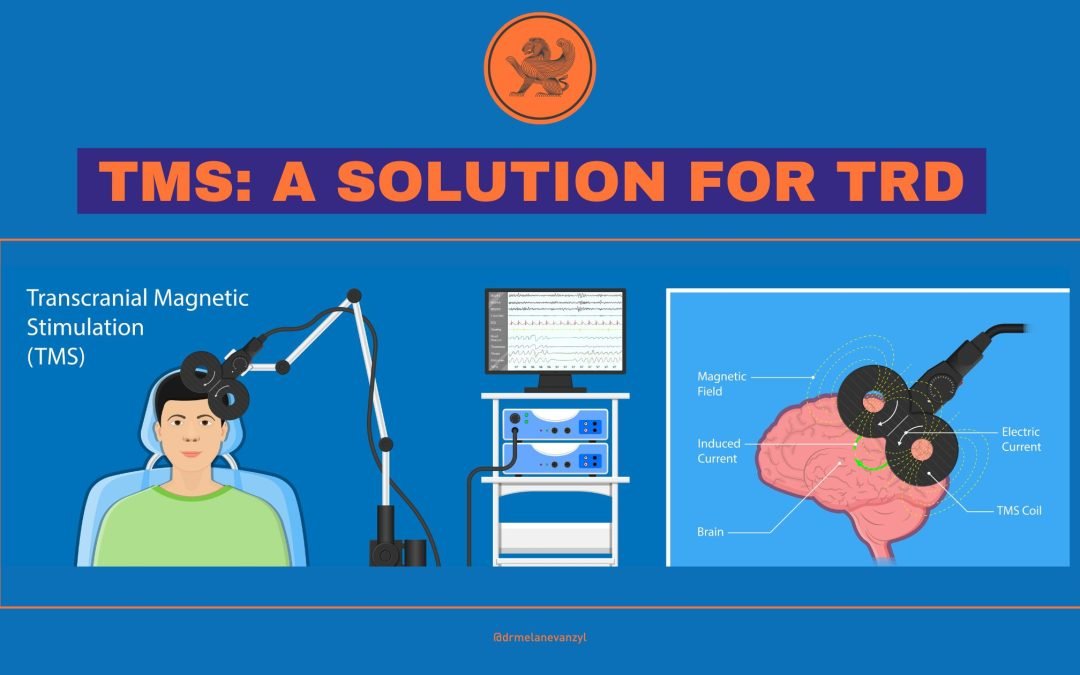Transcranial Magnetic Stimulation (TMS): An option for Treatment-Resistant Depression
CREDITS
Dr Melane van Zyl
It is common for patients with depression not to get better despite trying different antidepressants and psychotherapies. About one out of three patients will not get better after trying two antidepressants. This does not mean that antidepressants do not work (as suggested in the media recently). It means that antidepressants do not work for everyone.
One thing that makes psychiatry different from other specialties is that often we cannot prove our hypothesis about the cause of the disorder. For example, we cannot do blood tests or a brain scan to diagnose depression. Depression, as well as Bipolar Mood Disorder and all psychiatric disorders, work like this. Please let me know if you can think of a psychiatric disorder diagnosed with a lab test! As science progresses, we find the cause of illnesses that cause mental symptoms, which neurologists and physicians treat. Think of neurosyphilis, megaloblastic anemia, hydrocephalus, etc.
In the case of mood disorders, we postulate that the problem is with the neurotransmitters that create a “chemical imbalance.” We know certain neurotransmitters, e.g., serotonin and dopamine, are involved; if we supplement these neurotransmitters, some patients get better.
Why do antidepressants not work for everyone? Of course, the “art” part of psychiatry comes into play already when the diagnosis is made. If it is properly explained, patients can understand that medication will not help with some of their symptoms or problems. Antidepressants will also not work so well if the underlying cause is Bipolar Mood Disorder or Borderline Personality Disorder.
On a microscopic level, antidepressants will also not work if the problem in the brain is not a “deficiency” of the neurotransmitters but a problem with the receptors to which the antidepressant must bind to get taken up into the nerve cell. TMS is one of the treatments that cause neuromodulation.
My intent is not to describe the details of neuro psychopathology; other professionals can do it much better.
I do, however, want patients to understand that depression is seen as a treatable condition. It just takes longer sometimes to get to the correct treatment.
It is important to realize that untreated depression is not good for the brain. The longer we remain depressed, the more difficult it becomes to treat. Evidence shows that many psychiatric disorders are “toxic” to the brain. Just like many medical diseases such as diabetes and hypertension, the brain gets “damaged” by chronic depression.
TMS is a relatively new treatment option for depression in South Africa. It is, without doubt, more expensive than antidepressants but cheaper than admission to a hospital. Many patients know what depression has cost them and decide TMS is good value for money.
TMS is most closely related to ECT (Electroconvulsive Therapy), a highly effective treatment with some drawbacks and is not for everyone.
TMS:
• It does not require anesthetics
• The patient can drive home after the treatment
• It is better tolerated
To read more about TMS

